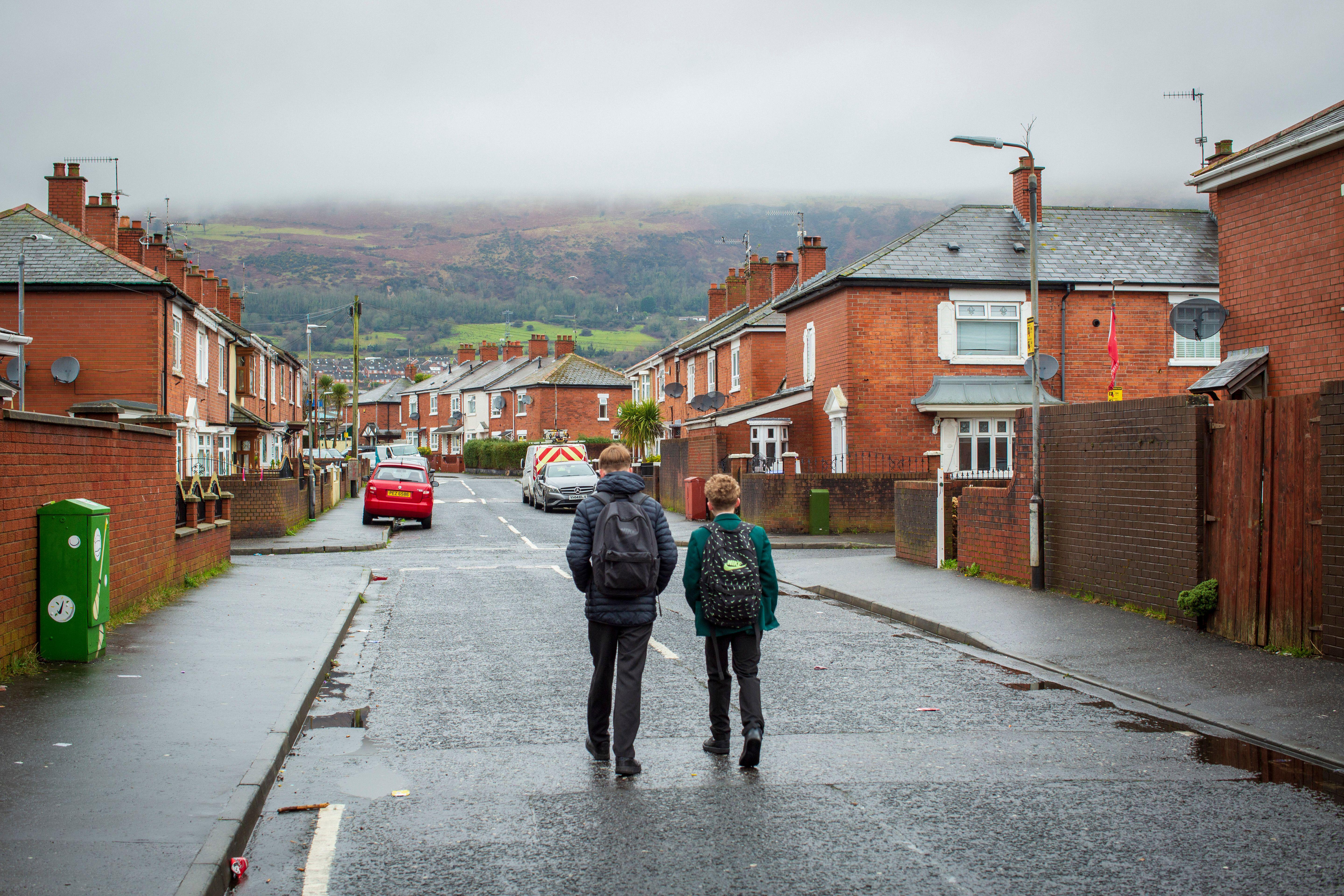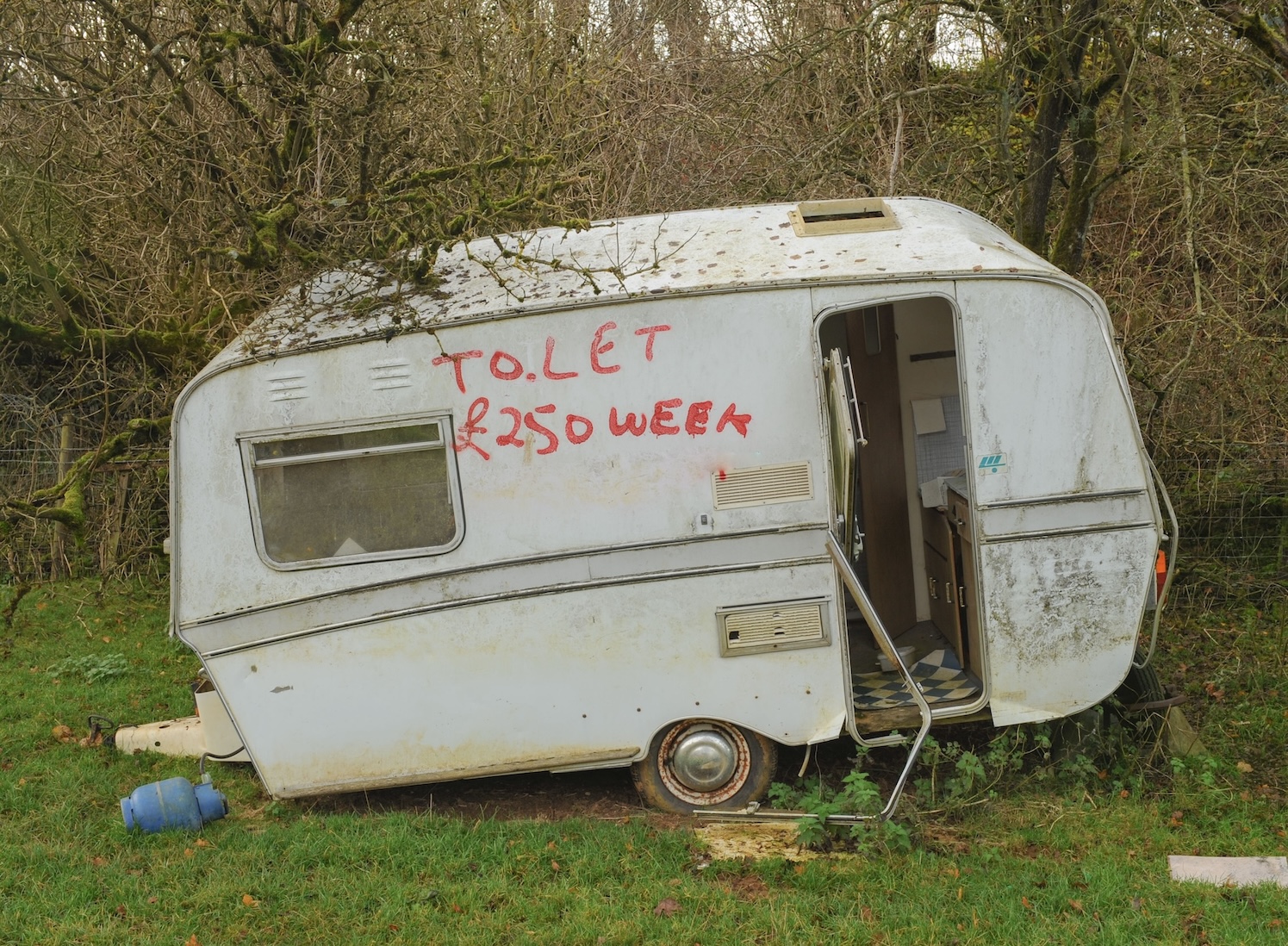Public sites for Irish Traveller communities in Northern Ireland are affected by recurrent and persistent sanitary issues including sewage and vermin problems, The Lead can reveal. The findings come after we used information access laws to ask the Northern Ireland Housing Executive (NIHE) for details of environmental complaints from residents on formal, authorised sites. In addition, despite widespread condemnation of previously publicised threats of paramilitary violence against Traveller communities, The Lead found such threats have continued in recent years.
Unlike in the rest of the UK, where Traveller sites are the purview of local councils, the five accommodation sites across Northern Ireland are operated by the Northern Ireland Housing Executive (NIHE). Its records show that between 2017 and 2021, environmental complaints were submitted by residents at four of the five - two in Craigavon and one in Derry-Londonderry and another in Coalisland, and “no data” being held on the fifth, in Belfast. Two sites previously managed by the NIHE, in Strabane and Derry-Londonderry, were closed in 2016.
The highest number of complaints was filed at a site at Coalisland, County Tyrone, with between 19 and 22 complaints being recorded annually. At other sites there were only between one and four complaints each year, and none were recorded during this time frame for Glen Road Heights, in Belfast.
Sewage, vermin and drainage accounted for the vast majority of the complaints across all NIHE sites (around 85%). Vermin complaints were recorded during multiple years across almost every such serviced site. Other complaints included drainage, 'odour(s) from manhole(s)', 'illegal' dumping of various kinds, burnt-out vehicles (cars and caravans) and odours from drains.
Traveller sites in Northern Ireland are either extremely isolated or are situated in difficult and unpleasant locations - mainly on the margins of towns and cities.
One, in Belfast, was very near an A road and an industrial estate; others were less than 100m from A roads; and one, in Derry, was particularly isolated from shops and other housing.
While gathering information on these issues The Lead has also learned that despite reports of paramilitary threats against Travellers in 2018 eliciting a high profile backlash, threats of violence have continued since, in one case leading to the shutdown of a serviced site in West Belfast. The threats - from individuals purporting to be paramilitaries - were so acute that community members asked no further details to be reported, not even the specific date, location and nature of the threats.
Such threats, amongst other concerns about poor housing standards on sites and their locations, point to the dangers posed to Travellers by the absence of adequate government oversight or monitoring of such sites.
Few options for retaining the old ways
An equalities and inclusion worker in the health and social care sector - who chose not to be named - believes housing for Travellers in the North is a “decades old problem of hidden homelessness, after one discriminatory law after another.”
He reiterates that many of the halting sites are isolated, in poor condition, or not well catered for. One, he said, was “in a dire situation”, with utility blocks, where residents clean and bathe, being “riddled with condensation.” Other sites are connected to bus routes, he adds, but have few amenities.
There are few other alternatives for Travellers who want to remain in culturally sensitive housing that respects their rights to nomadism, living in trailers on traditional sites, rather than move into bricks and mortar, the worker says. He also points to a handful of housing developments with what is called ‘grouped housing’ in the North and South, managed by NIHE or housing associations, which is specific social housing designated for Traveller families.
He says: “Some of those have great facilities, but may be more expensive to develop.” On the other hand, there are also some informal sites where he says facilities are poor but numbers of residents can be surprisingly large, with one near an airport, and others having problems with no access to running water or sewage.
Deirdre McAliskey, policy and engagement manager for the South Tyrone Empowerment Programme, which supports Irish Travellers, tells The Lead that many of the issues raised with Traveller accommodation in the North stem from years of ingrained prejudice.
"Traveller sites and Traveller accommodation needs are not simply 'invisibly falling through the cracks' of under-resourced services and lack of clear accountability,” she says.
“They have, in plain sight, been falling through a chasm of long standing prejudice and studied neglect.”
Her comments chime with NIHE’s most recent accommodation strategy document, which found that few Travellers lived on serviced sites, and of this number even fewer were satisfied with their housing conditions, when compared with bricks and mortar or grouped housing.
The proportion of Irish Travellers in the North living on the five currently open, permanent, serviced sites has dropped from 21% in 2002, to 9% now; two transit sites welcome far fewer visits as well, with numbers of those living on transit sites dropping from 5% in 2008 to just 1% in 2019, according to the NIHE. Between them, there are just 47 units, or pitches, open for residents across the North on such sites.
Responsibility for planning was removed from councils in Northern Ireland in 1972, partly because of “wanton abuse” of power, including discrimination and sectarianism planning expert, Dean Blackwood told The Lead, calling it a “unique planning system” that operated between 1972 and 2015.
Since 2015 and the return of planning powers to local authorities, councils in Northern Ireland have been preparing local development plans which will provide policy to facilitate traveller sites where a need is identified.
But Blackwood warned that this is taking far too long and that meeting current levels of need is likely to be hindered as planning applications for traveller sites can also generate “a lot of objections”.
Not unique to the North
While the siloing of issues faced by Traveller into the purview of one narrowly defined department of government is particular to Northern Ireland, the issues themselves would be painfully familiar to similar communities on both sides of the borders - in the Republic of Ireland and in mainland UK.
Rats, foul odours from sewage and blocked drains were also frequent complaints in work previously carried out by this article’s co-author, Katharine Quarmby, on authorised Gypsy and Traveller sites in Britain of England, Scotland and Wales, with other fears raised about air and noise pollution, dust, flooding and insects. Around a quarter of the UK’s 300,000 or so community members live on sites, with the rest living in bricks and mortar. The findings across the UK were summarised in a journal article she published this week in Critical Social Policy.
Brigid Carmody, co-ordinator of the Cork Traveller Women’s Network, points out that, in addition to this, land selection problems are at the root of many challenges Traveller communities face in securing safe living environments south of Ireland’s land border.
“These issues experienced in NI, unfortunately, are not surprising,” she says. “They stem from a combination of poor planning decisions and questionable land use practices by local authorities.”
She highlights that a significant concern in the South is that accommodation sites have been established near local dumps or on contaminated land which, she says, poses serious health and environmental risks to the residents.
“Furthermore, the problems are exacerbated by inadequate sanitation facilities and ineffective refuse collection services,” she adds. “The prevalence of open bins in these areas not only contributes to the unsanitary conditions but also attracts vermin, leading to a rise in related complaints.”
Amid the prospect of a restored power-sharing Executive, Carmody says an overhaul in planning and land use was needed in order to safeguard Travellers’ rights.
“These conditions highlight a broader issue of negligence and lack of consideration in the planning and provision of suitable accommodation for the Traveller community. It is a matter that requires immediate attention and action from the responsible authorities to ensure that the basic rights and living standards of every community member are respected and upheld.”
Passing the buck
The Lead reached out to a number of Departments in the restored Stormont government for comment, including Communities, Infrastructure, and Agriculture, Environment and Rural Affairs. All but the latter, which returned no comment, referred us back to the NIHE.
NIHE told The Lead, in a statement: “There is no one single solution to the many challenges experienced by Irish Travellers. Accommodation is linked with a range of deprivation factors experienced by Irish Travellers such as health and well-being, education, racism, mortality and discrimination.” The statement adds that planning for, providing and managing culturally sensitive accommodation,can help reduce some of these problems and contribute to improved outcomes for the Traveller community.
“To that end we have established a dedicated Team (the Irish Traveller Policy Unit – ITPU) to oversee the development and implementation of the Irish Traveller Accommodation Strategy to ensure Irish Traveller needs are addressed and actioned.”
The UK-wide charity, Friends, Families and Travellers, says sidelining and discrimination has translated into a wide range of problems.
A spokesperson said: “Irish Traveller communities have endured an unrelenting cycle of marginalisation, across the UK, and experience some of the worst health outcomes of any minority ethnic groups.
“As this research shows, more sites are urgently needed – alongside concerted government action towards ongoing security and maintenance. Otherwise, dire health outcomes will only worsen and more Irish Traveller families will face desolation. Suitable, safe and culturally pertinent accommodation is a human right – for everyone.”





